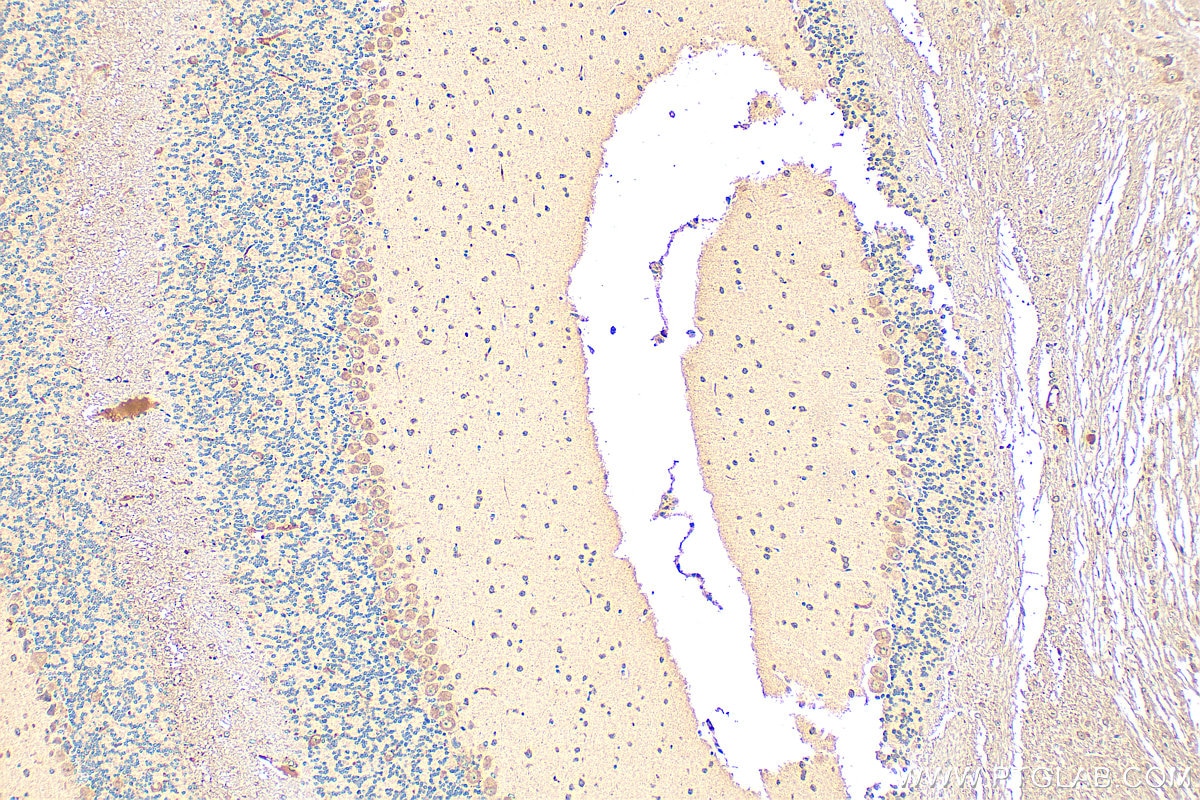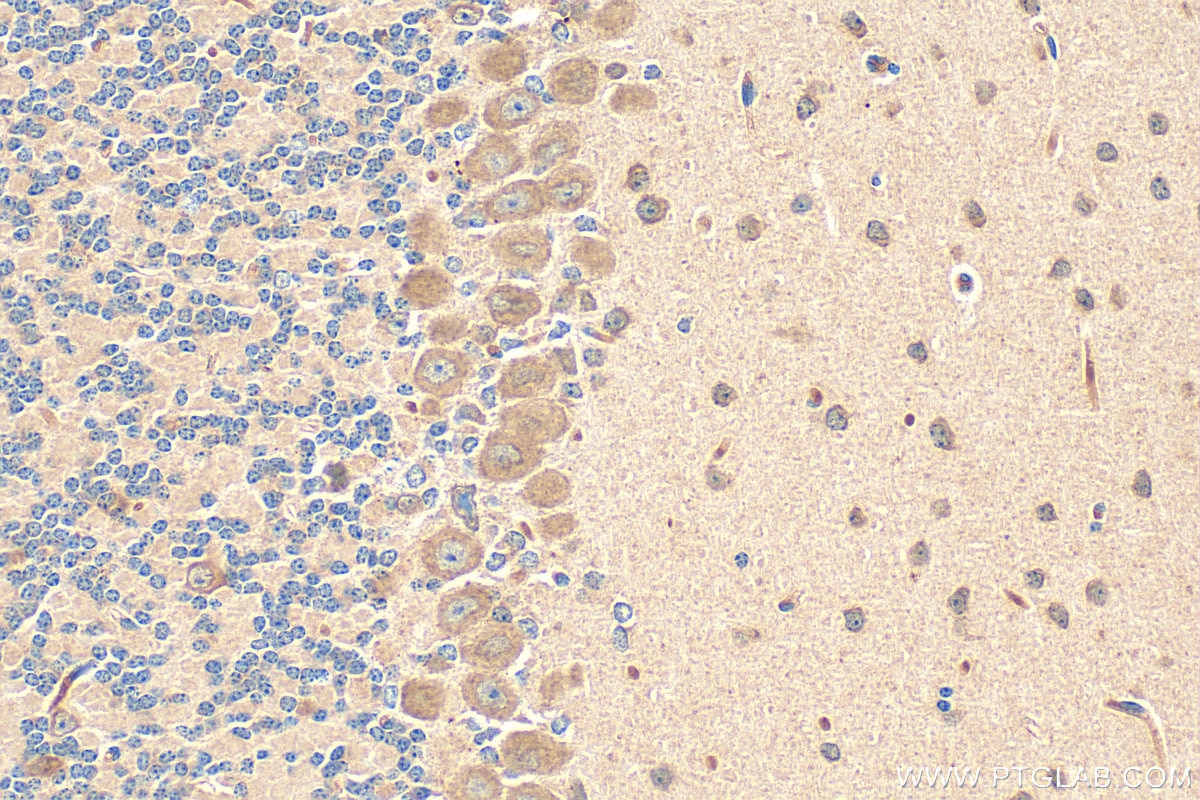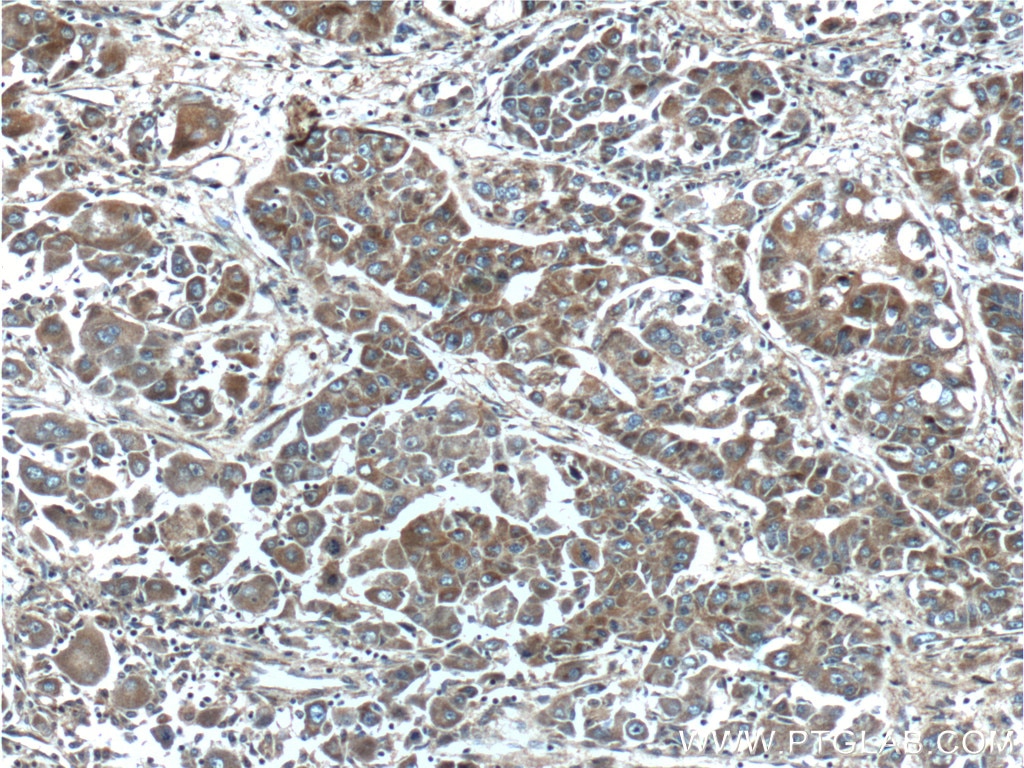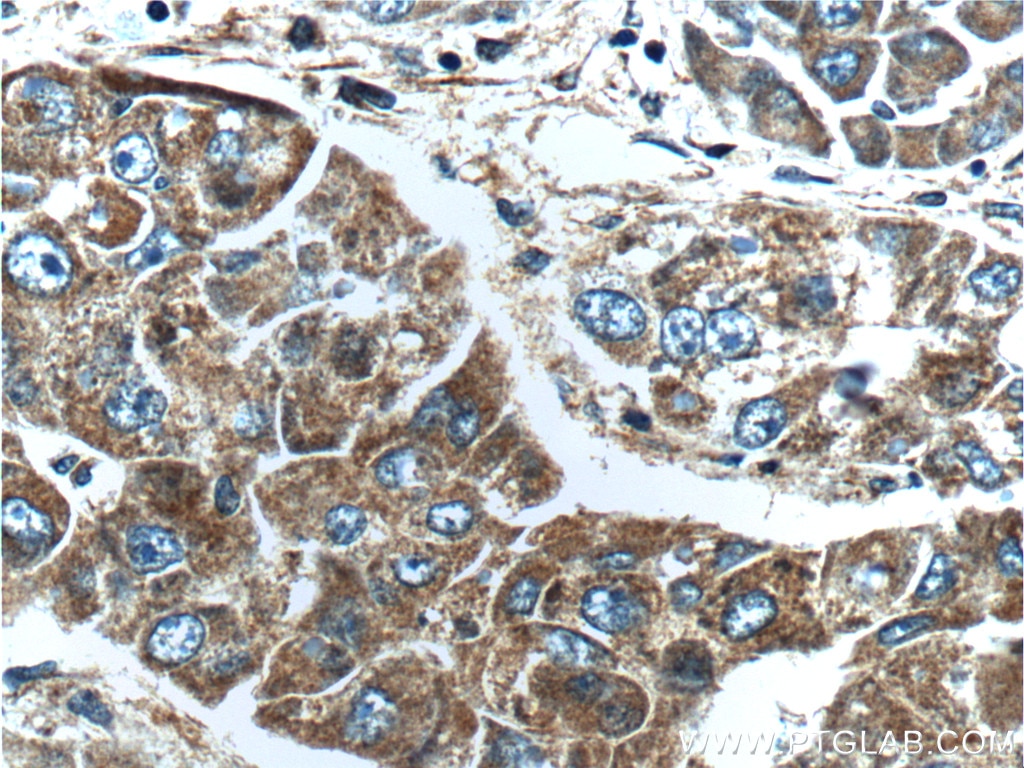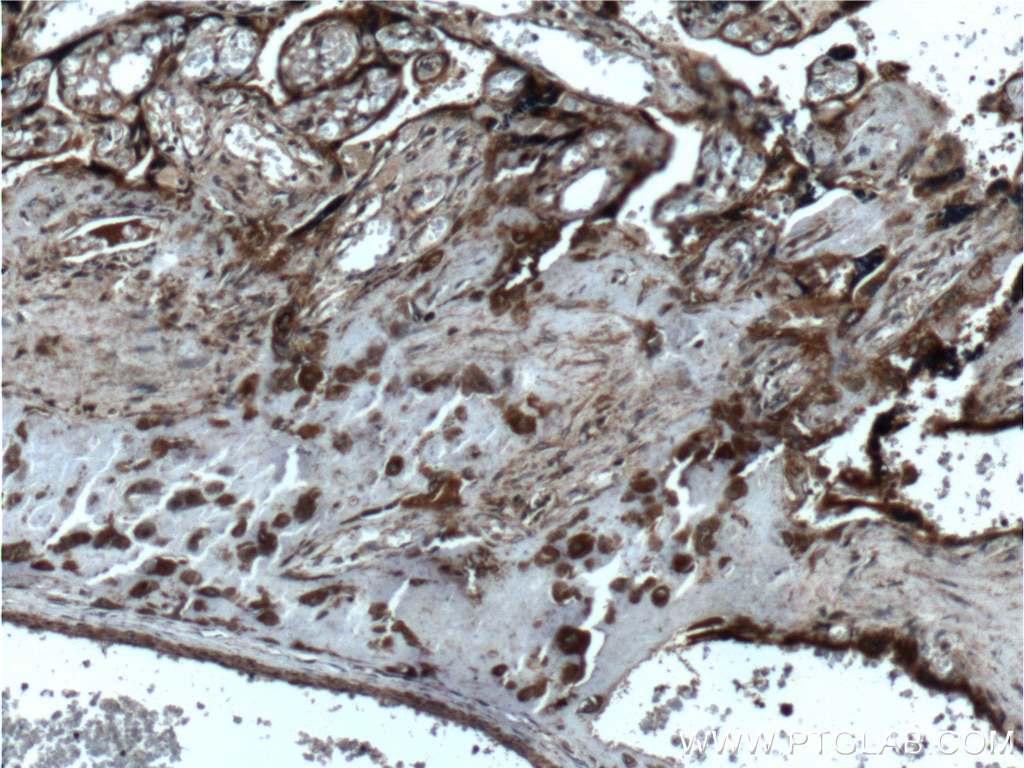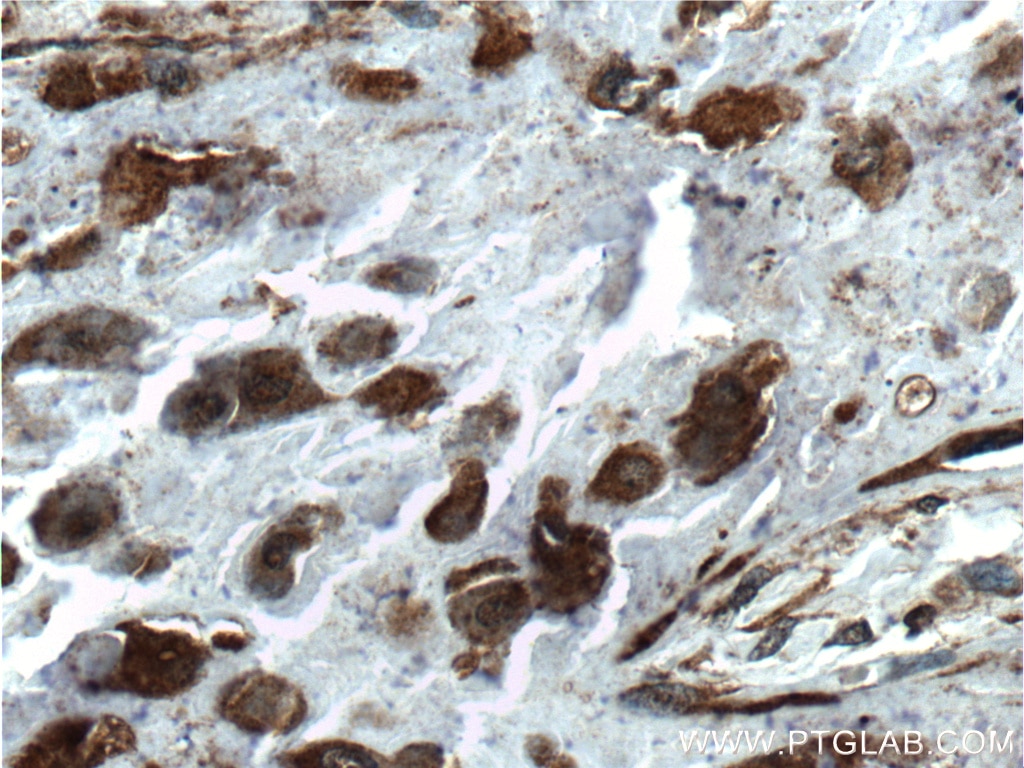Tested Applications
| Positive IHC detected in | mouse cerebellum tissue, human liver cancer tissue, human placenta tissue Note: suggested antigen retrieval with TE buffer pH 9.0; (*) Alternatively, antigen retrieval may be performed with citrate buffer pH 6.0 |
Recommended dilution
| Application | Dilution |
|---|---|
| Immunohistochemistry (IHC) | IHC : 1:50-1:500 |
| It is recommended that this reagent should be titrated in each testing system to obtain optimal results. | |
| Sample-dependent, Check data in validation data gallery. | |
Product Information
16874-1-AP targets FGF3-Specific in IHC, ELISA applications and shows reactivity with human samples.
| Tested Reactivity | human |
| Host / Isotype | Rabbit / IgG |
| Class | Polyclonal |
| Type | Antibody |
| Immunogen | Peptide Predict reactive species |
| Full Name | fibroblast growth factor 3 (murine mammary tumor virus integration site (v-int-2) oncogene homolog) |
| Calculated Molecular Weight | 27 kDa |
| GenBank Accession Number | NM_005247 |
| Gene Symbol | FGF3 |
| Gene ID (NCBI) | 2248 |
| RRID | AB_2878326 |
| Conjugate | Unconjugated |
| Form | Liquid |
| Purification Method | Antigen affinity purification |
| UNIPROT ID | P11487 |
| Storage Buffer | PBS with 0.02% sodium azide and 50% glycerol, pH 7.3. |
| Storage Conditions | Store at -20°C. Stable for one year after shipment. Aliquoting is unnecessary for -20oC storage. 20ul sizes contain 0.1% BSA. |
Background Information
FGF3 is a member of the Fibroblast growth factor family, binding to Fibroblast Growth Factor Receptor 3 (FGFR3). Frequent amplification of this gene has been found in human tumors, which may be important for neoplastic transformation and tumor progression. FGF-3 was reported to be responsible for most of breast malignancies. This antibody is specific to FGF-3. It does not bind other FGFs.
Protocols
| Product Specific Protocols | |
|---|---|
| IHC protocol for FGF3-Specific antibody 16874-1-AP | Download protocol |
| Standard Protocols | |
|---|---|
| Click here to view our Standard Protocols |
